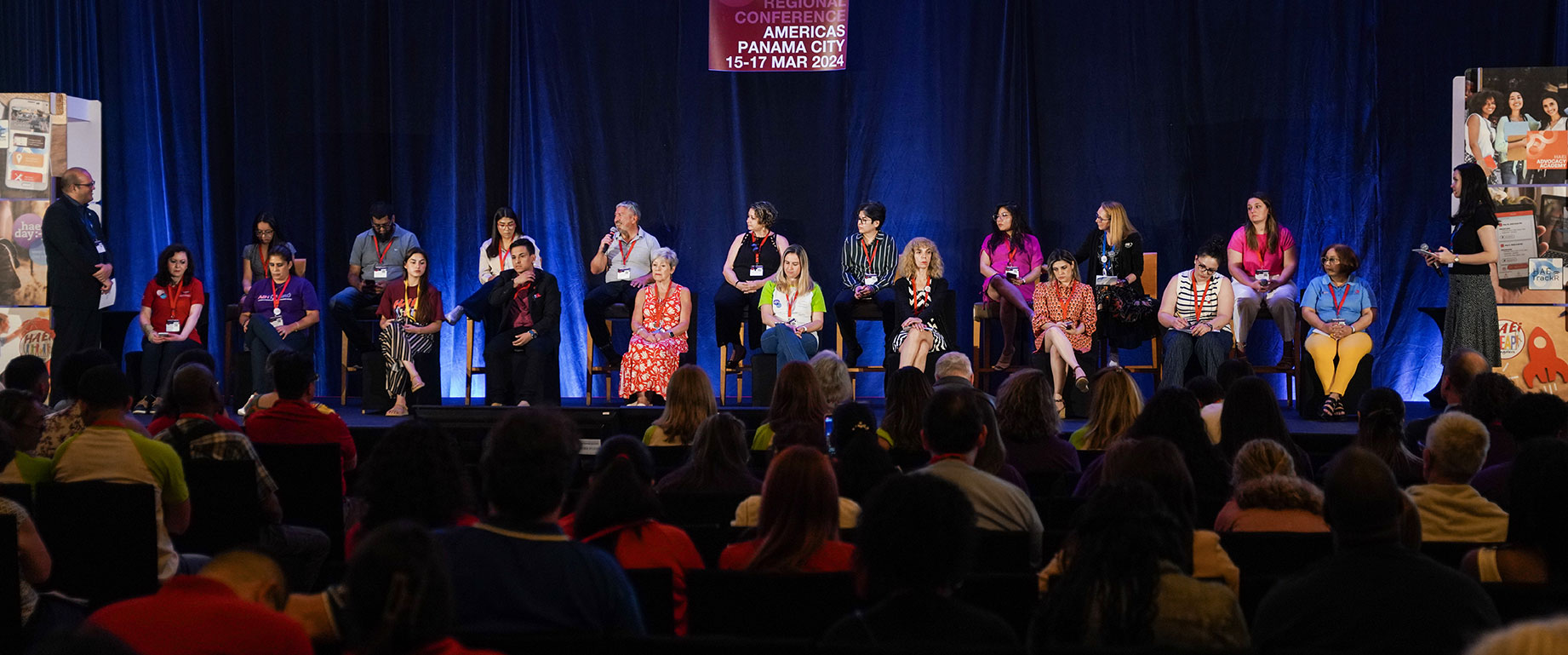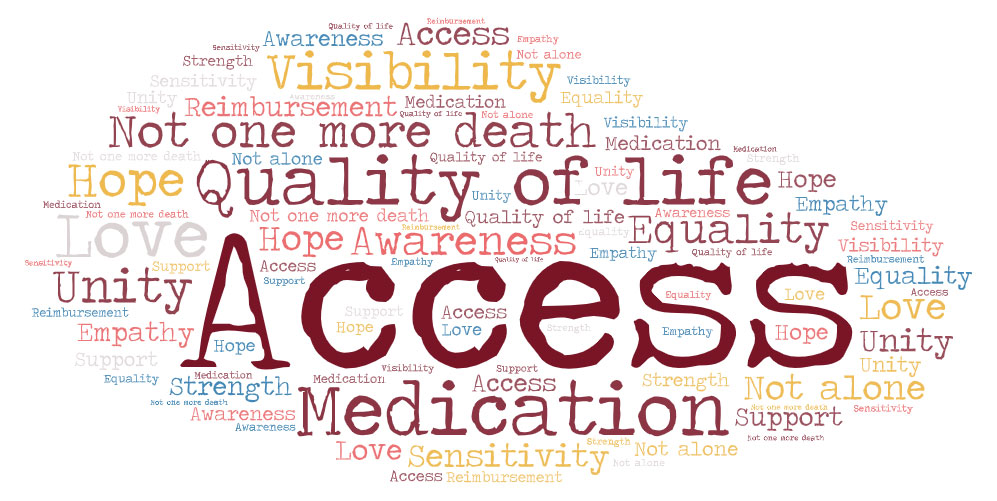This article is part of an extensive feature on the 2024 HAEi Regional Conference Americas, published in Global Perspectives #1 2024
HAE in the Americas – MO Panel Discussion

Javier and Fernanda brought representatives of all the Member Organizations to the stage for the Americas MO panel discussion. For many representatives, this was their first time speaking at a conference, and we truly appreciate everyone’s contributions. Here we report a summary of the questions and responses.
The first question was, how is HAE diagnosed in your country? Each country responded, and the disparity in getting an accurate diagnosis was clear. Some countries have doctors who know about HAE. Some countries have access to testing; blood tests and genetic testing. Some countries have both. Many countries have none.
Panel members were then asked, why did you become an advocate?
Nicolas Velasquez from Colombia answered: “I have a personal and professional commitment to the cause. I have lived in Colombia. I have lived in the United States. No country is perfect. But I am privileged, and I have a voice. As a father, I know that there may be one person in this country somewhere who doesn’t have the same access that I had, and that is why I became an advocate.“
Edison Galarraga from Ecuador said: “There are many drivers for many people, but my driver was my family. My son was diagnosed, and so I understand that it’s a fight. It’s a fight against the government, against institutions to be able to have access to the quality health care that is needed. You need to keep at it. The end result is what’s important, and that’s what moves me.”
The panel then discussed advocacy and the patient voice, why it is important, and what your future plans as an advocate are. The key message on the importance of advocacy is raising awareness of HAE to get access to medicines. This is the common fight: to be able to live a better life.
Plans for the future include collecting and using data to support activity, pushing for the approval and reimbursement of medicines, maintaining access to those medicines once they are available, expanding the reach of our community, and getting more people involved in clinical trials.
“Data is important to identify who we are, and how many we are. We need to identify ourselves to show people that we are important. If you don’t have data, we do not exist,” was a comment from Renata Martins, Brazil, and Carla Boulanger from Peru said: “I’m a patient. It’s very important to raise your voice, in your country. Because if the patients themselves don’t speak up, then the education is not going to have an impact.”
In a quick-fire final question, the panel members were asked for a one word answer to what is the number one priority for your country?











